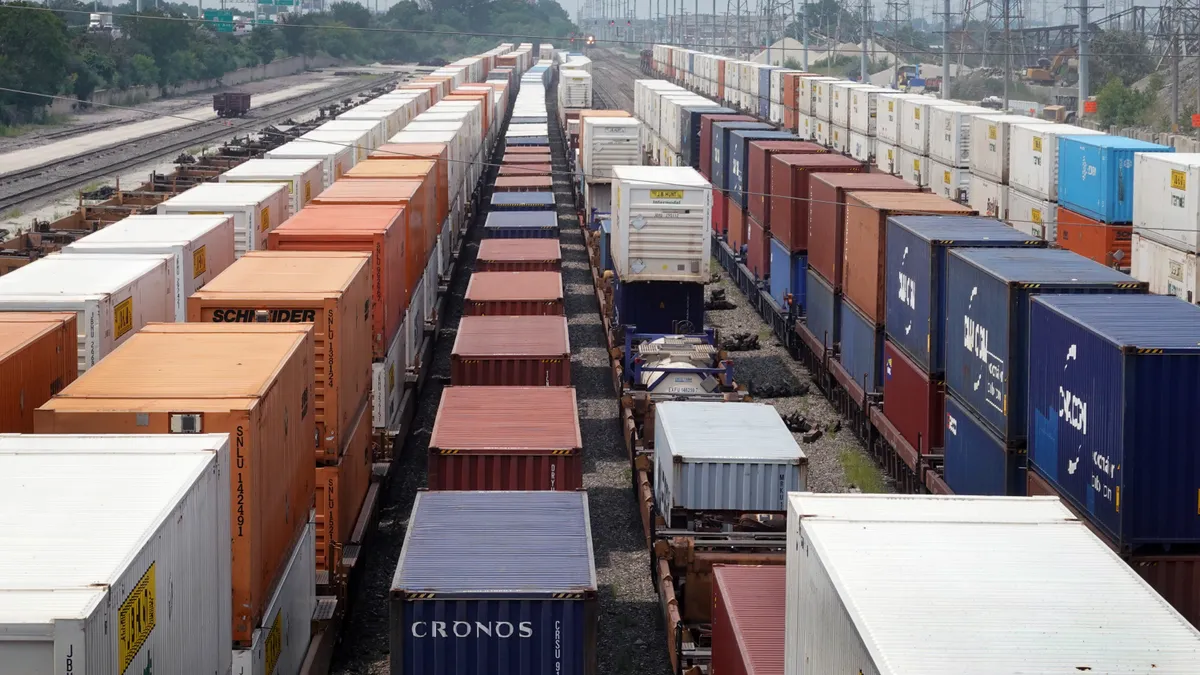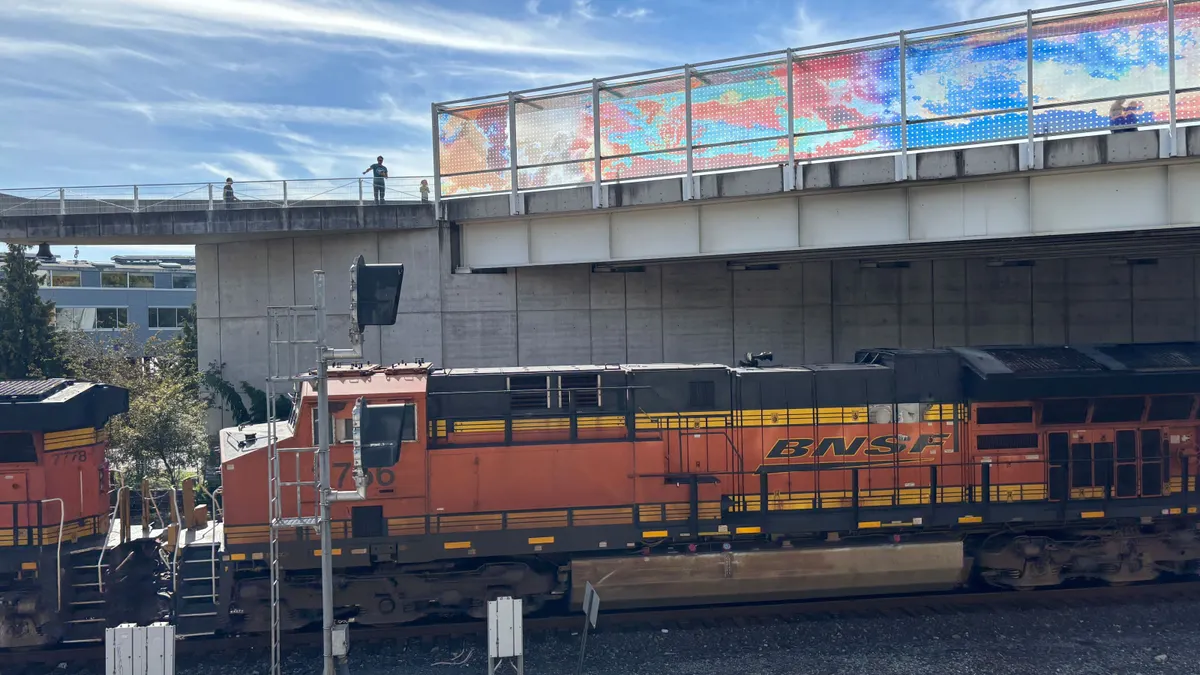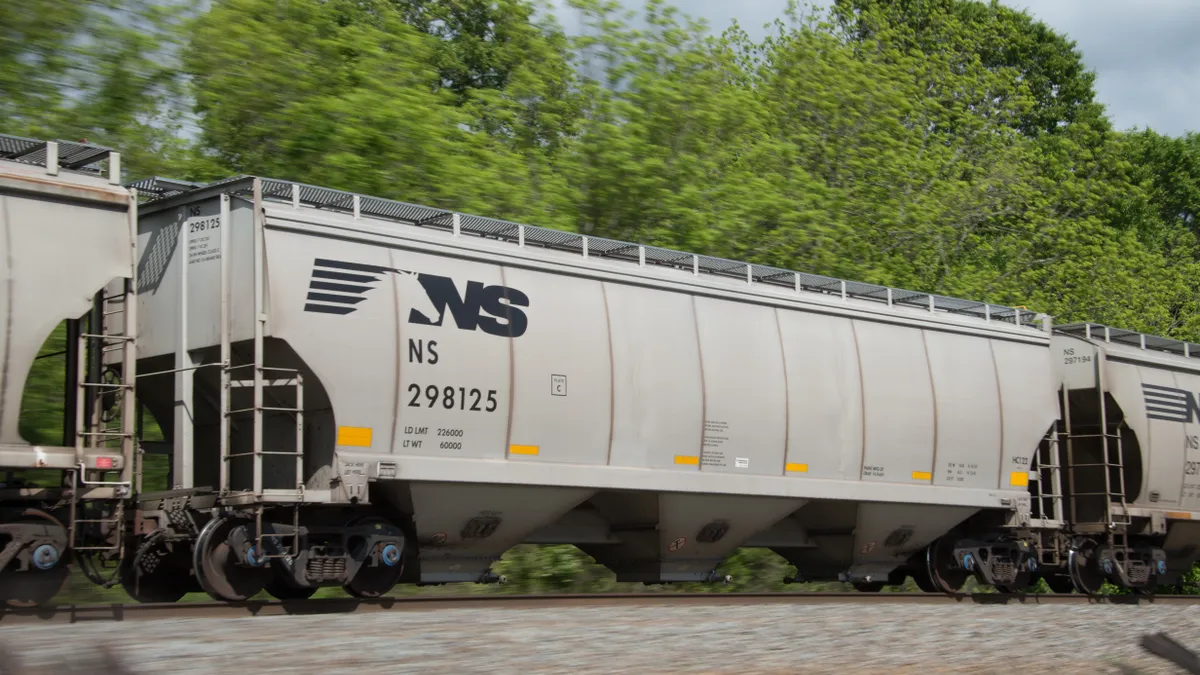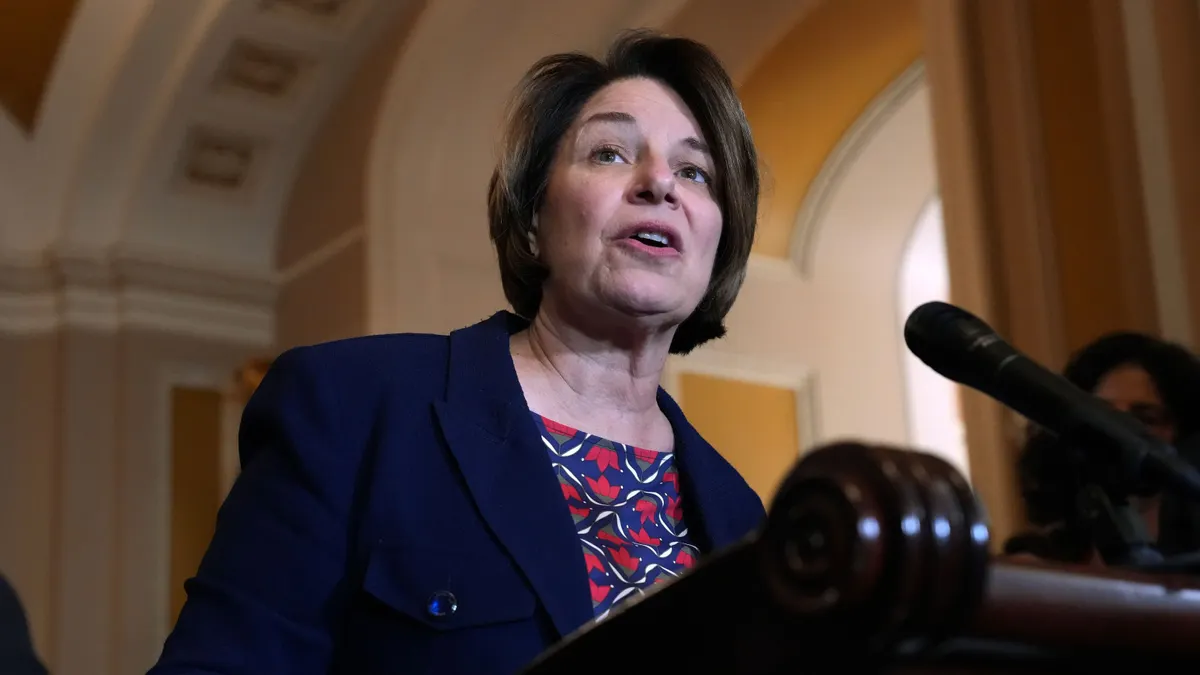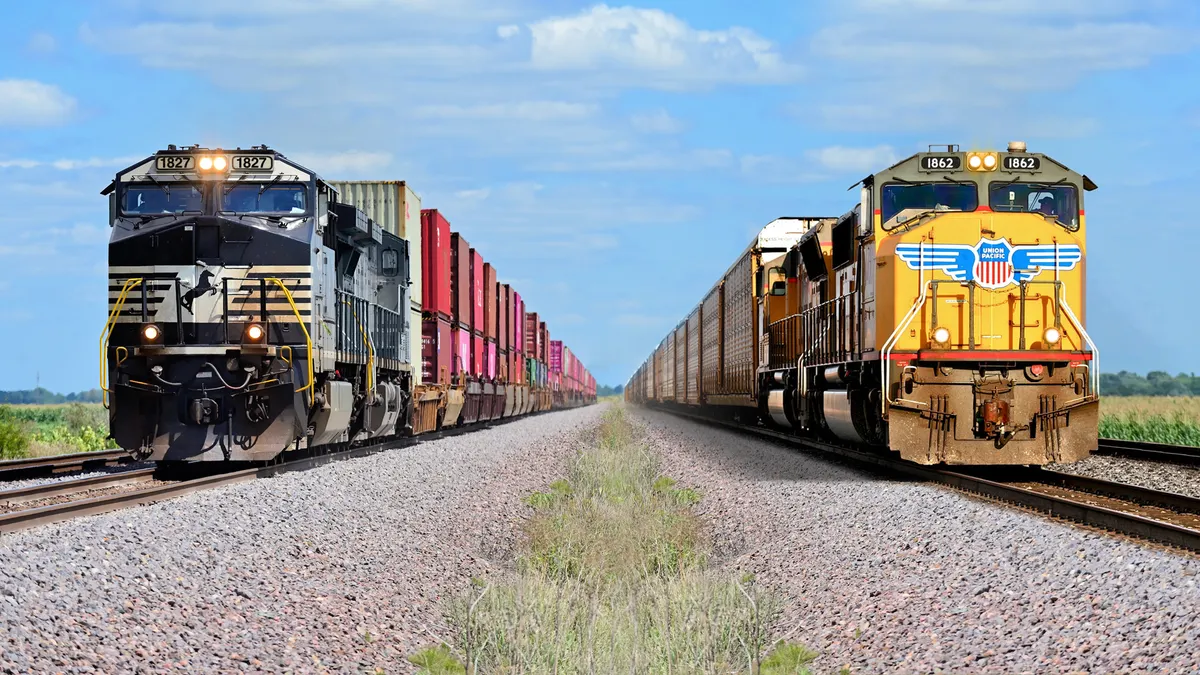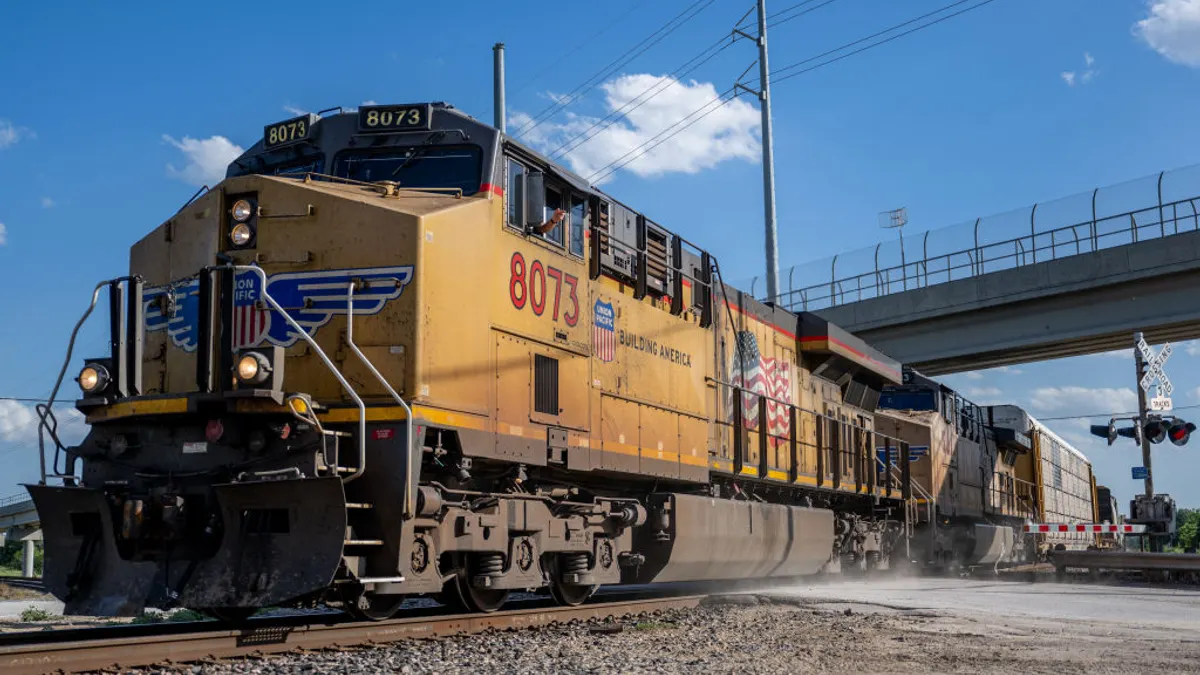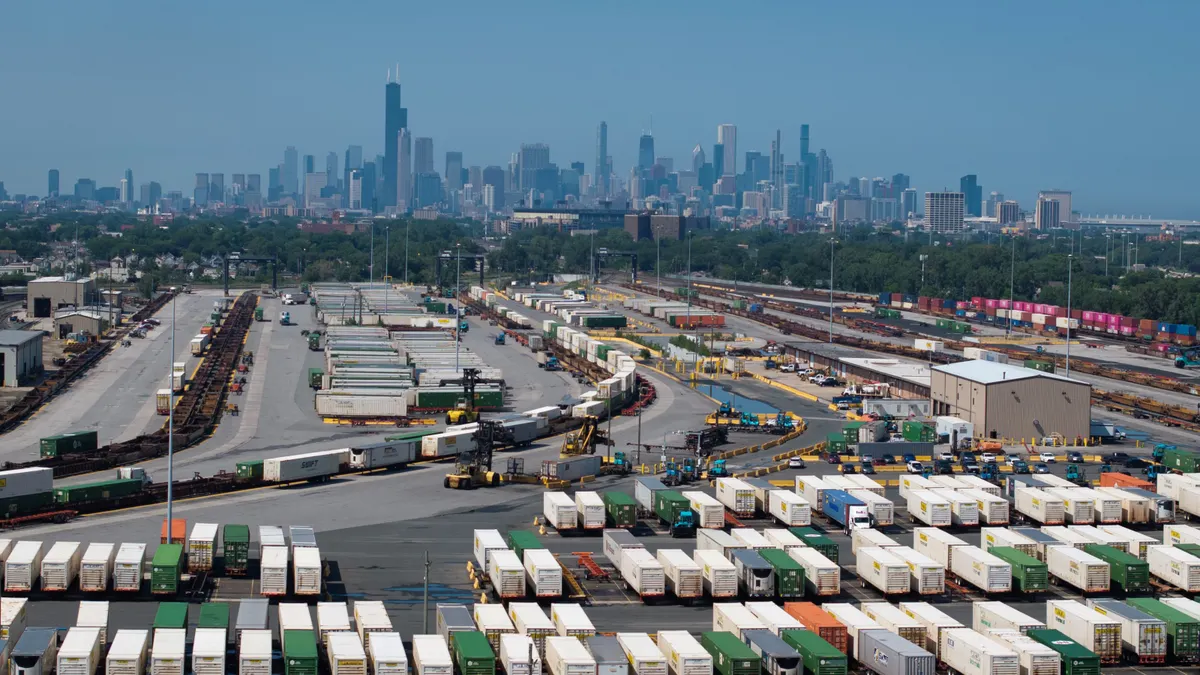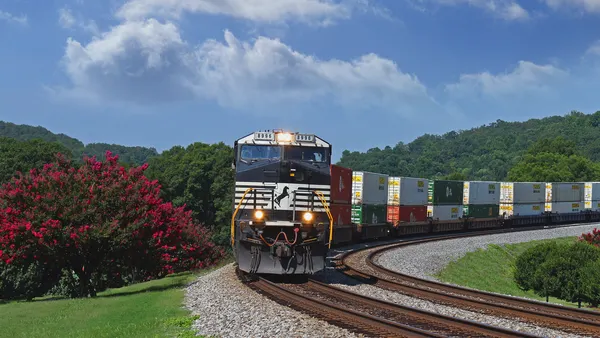Federal regulators seem inclined to adopt some form of reciprocal switching rules, with Surface Transportation Board Chairman Marty Oberman saying the proposal could be a way to address high rates and service concerns in the rail industry without the need for more "granular regulation."
Board members heard from shippers and railroads in a two-day federal hearing in March as they weighed the merits of a 2016 proposal that would require railroads to establish arrangements for shippers to have access to nearby competing carriers when no other competitive option exists.
Shippers argue reciprocal switching would create more competition in a consolidated industry, and in turn pressure carriers to offer lower rates and better service. Railroads argue the opposite, saying it could exacerbate delays by forcing additional complexity into their operations.
Oberman appeared willing to narrow which shippers would be eligible for reciprocal switching potentially based on factors such as location. Still, he agreed that the rule could bolster competition and potentially address shipper complaints.
"As quickly became apparent to me in recent years, there has been a downturn trend in both the quality and quantity of service in the industry," Oberman said. "In my view, one means of dealing with these trends ... is to enhance the competitive landscape."
Shippers complain of service declines
Shippers have complained of service problems in recent years, including instances of missed switches, long delays and intermittent service. For those that have no real economic alternative to rail, service problems can mean disruptions to production.
A Kraft Heinz facility in North Florida served by a single Class I carrier, for example, had to close at least on one occasion for an entire week due to rail service problems, according to former STB Chairman Dan Elliott, representing the Private Railcar Food and Beverage Association.
"Despite numerous pleas to the railroad, nothing was done to remedy the situation despite these dire consequences," Elliott said. "If reciprocal switching had been a possibility, it likely would have been able to prevent the Kraft Heinz plant from being shut down by using another nearby Class I railroad."
Disruptions have led to higher fees and shipper costs, and many businesses have paid more to shift volumes to the truck spot market in the face of rail constraints. One company estimated it was losing at least $200,000 a day due to erratic switching and delayed deliveries of rail cars, according to Elliott.
Certain shippers do have access to reciprocal switching, usually as part of existing agreements with railroads that were made during a merger. Shippers could also petition the STB for reciprocal switching access if they can prove a railroad engaged in anti-competitive abuse, though many shippers argue those standards are too high and note the agency has never granted a request for the remedy.
Chemical company LyondellBasell, which has a reciprocal switching arrangement with a U.S. rail carrier, was able to use switching as a way to alleviate service disruptions on multiple occasions, according to Jeff Moreno, a lawyer for Thompson Hine representing a coalition of shipper groups.
"The benefits of reciprocal switching are so significant that LyondellBasell made capital investments to add 2,200 storage and transit car spots across four of their facilities to allow access to competitive service options," Moreno said.
Railroads say reciprocal switching would make service problems worse
Railroads argue that reciprocal switching would only worsen existing service problems, injecting unnecessary complexity into their operations that could lead to even more delays.
Reciprocal switching could make it harder for railroads to manage their networks and could cause new delays, railroads say. Union Pacific said the reciprocal switching it currently performs adds an additional 48 to 96 hours of delays, as cars have to traverse a terminal twice.
"We would be using more resources to move the same amount of traffic instead of using our resources to better serve existing business," said Eric Gehringer, executive vice president of operations at Union Pacific. "This proposal inherently complicates the supply chain. It would make that network less agile and less predictable."
The rule could also create new traffic patterns that would impact where railroads dedicate their resources, which could have effects on the entire network.
"We will begin incurring costs immediately because we will need to plan for a shipper with an open switch suddenly deciding that it wants to wants us to interchange with a competing carrier and vice versa," said Cindy Sanborn, COO of Norfolk Southern. "We will need to divert additional resources to that location to plan for this change in our operations. And that diversion will most certainly have collateral impacts elsewhere in the network."
For Union Pacific, the rule would be a disincentive for railroads to invest in their networks — including in projects that could add capacity or reduce congestion.
"I liken it to allowing Burger King to use the grill at McDonald's," Union Pacific CFO Jennifer Hamann said. "Would McDonald's invest in a larger grill with better cooking technology if there was a real possibility that Burger King would co-opt the use of that grill?"
The STB appears poised to act
The board seemed hesitant to adopt the 2016 reciprocal switching proposal as is, which would allow shippers to pay a fee to switch another carrier that is within "a reasonable distance" from a shipper's facility.
Oberman weighed narrowing the proposal to only apply to areas where carriers already have reciprocal switching arrangements in place to minimize disruption, at least at first. Norfolk Southern, for example, has a little over 100 locations where reciprocal switching already takes place.
The board will continue to communicate with stakeholders, and is allowing for additional submission of comments as it crafts its final decision. Members indicated that the regulation could be necessary to help solve service problems that haven't been alleviated by the free market alone.
"If you're so worried about [reciprocal switching], then start delivering better service on that infrastructure and better rates," said board member Robert Primus following Union Pacific's testimony. "I'd rather not be sitting here listening to you guys. I'd rather see you guys fixing the problem. But you're not."
Editor's note: This story was first published in our Logistics Weekly newsletter. Sign up here.



